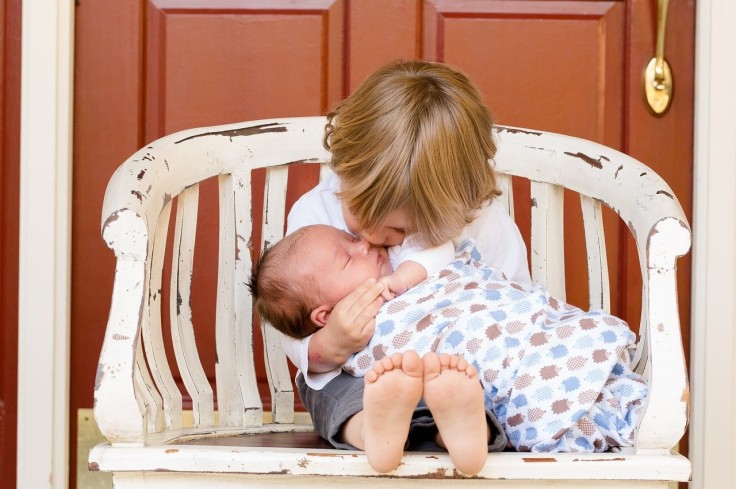
A mother recently shared on a health page on social media that her baby girl has been dealing with an active cold sore, which is medically known as neonatal herpes or HSV-1. Showing pictures of her little girl's sores in the mouth, the mother said that her baby's condition has been going on for over a week, and she hasn't eaten solid food nor taken water as much as she should because it's too painful.
According to the experts at Boston Children's Hospital, the HSV-1 virus, also known as herpes simplex virus, occurs in 1 to 3,500 babies in the U.S. Though it's a rare condition, contracting the virus will need immediate treatment because it can cause complications and affect the baby's brain and spinal cord.
Here are the most effective ways to protect babies from this serious disease:
1. Limit kissing the baby.
The mother who appealed for her baby's treatment said that those who suffer from cold sores should be mindful, especially around babies. People should understand when parents tell them not to kiss the baby because that's how their daughter got the virus. She also stressed the importance of good hygiene and curbing the habit of sharing food and cutlery with babies since they are still developing their immunities.
The UT Southwestern Medical Center agreed with never kissing the baby because they have dealt with a serious case of neonatal herpes. A family visitor recently recovered from a cold sore, infected a newborn, and her condition escalated as viral meningitis.
2. Avoid crowded places when the baby is still a few months old.
UT Southwestern Medical Center also suggested not to take the babies in crowded public places if they are less than six months old. The HSV-1 virus can be easily transmitted via "incidental touching" between strangers. In most cases, when the virus is in the body, the person is infected for life though most people don't show any symptoms.
According to HealthyChildren.Org, the HSV-1 virus will usually settle within the body's nerve cells. If the symptoms appear, it means that it's been activated and will usually manifest in the skin first. Parents may notice their child scratching on the same spot of their skin, and then other symptoms like tingling, itching, and burning in the mouth will follow.
The recurrence of neonatal herpes varies depending on the body's immunities. Some children may have an outbreak every now and then, while others won't get another symptom again.
3. Boost the baby's immune system.
Neonatal herpes will likely reappear because the child's immune system is down. Thus, it's essential for parents to provide their kids with proper nutrition and a lot of water.
Managing the symptoms of neonatal herpes can be done with intravenous antiviral medications, which could last for weeks. In most cases, hospitalization is necessary to deliver better outcomes. The quicker the treatments are administered, the better the chances of recovery for the baby.